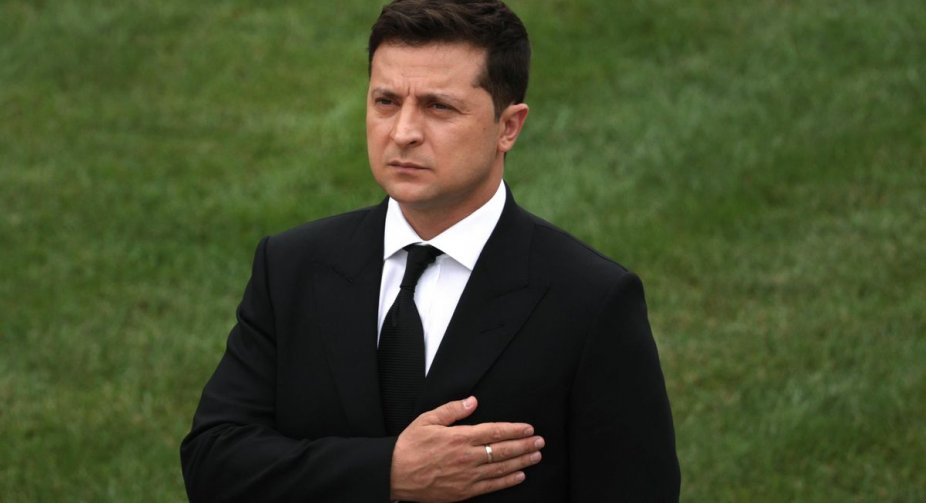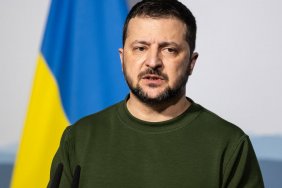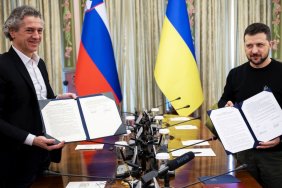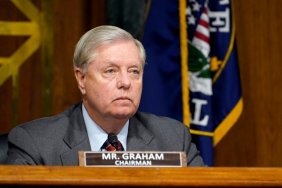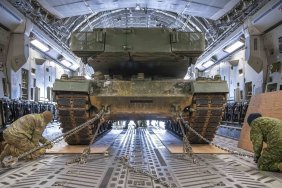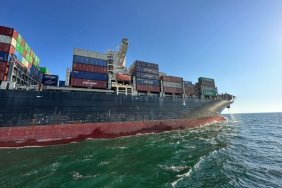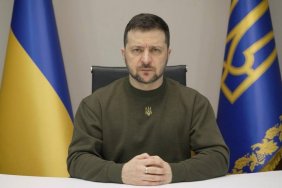The text of Ukrainian President Volodymyr Zelensky's interview with the Italian newspaper La Repubblica is quoted by the official internet representation of the head of state.
- President Zelenskyy, Vladimir Putin is again gathering his troops on the border with Ukraine. Do you think that this time military maneuvers pose a greater threat than usual?
- What are the troops gathered near our border used for? This is the potential for blackmail. And first of all against the western states. But if the number of Russian troops grows, blackmail will become even more severe, which can be called preparation for the expansion of aggression against our state and, perhaps, the region as a whole. Ukraine sees no surprises in what is happening on our eastern borders. Russia started this war in 2014, and since then we have been ready for any scenario. Unfortunately, this cannot be said of all European countries. For example, Germany has recently prevented us from receiving anti-drone rifles and anti-sniper systems, which are exclusively defense tools, from NATO. Are we not entitled to them in the eighth year of the war? Obviously we are. Any democracy that protects itself from aggression should have the right to acquire such defense instruments. But in some capitals, fear still prevails.
- Europe and the United States without delay condemned the Kremlin, again standing side by side with Kyiv. But if Russians decide to invade your country tomorrow, will the Ukrainian army be ready to resist them?
- We will defend our land and our people under all circumstances and from any encroachments. Ukrainians will never give up their freedom. Meanwhile, a museum with a collection of various condemnations may already be opened in Moscow. Undoubtedly, we are grateful for the support, but collective efforts are not enough yet to return the Russian side not only to the projected policy, which would be based on respect for international law and neighboring countries, but also to meaningful negotiations for peace in the east of Ukraine. An example is one of the agreements of the Normandy summit in Paris in 2019, which is still not being implemented - the agreement on prisoners. Hundreds of our people are being held captive in the occupied territories, and Russia has made a clear promise to ensure full and unconditional admission of international organizations to them. But this is not happening because Ukrainian prisoners are in such a terrible state that Russia cannot show them to the Red Cross.
- Have you thought about the possible number of casualties on both sides in the event of war?
- Precisely because we think about the possible number of casualties, we constantly insist on intensifying diplomacy. We do not resort to saber-rattling, we do not gather troops on the border, we do not take forceful steps towards the occupied territory of our state. During the war we have already had about 15 thousand dead. One and a half million Ukrainians were forced to flee their homes and became IDPs. If we talk about the price not of local but of wider conflict, it is clear that the number of human losses can be much higher. In particular, for Russians. Is Russian society ready to pay with the lives of its sons for the attempt to occupy another part of Ukraine?
- Meanwhile, people are dying in Donbas. Why, after almost eight years, are there no changes in this conflict that would lead to peace?
- Ukraine is ready to make all the necessary efforts to make peace honest and lasting. This interview will turn into a thick book if I begin to list all the proposals and efforts to intensify the negotiations that the Russian side has received from us during the war. But one small paragraph will suffice to retell Russia's answers, because they all boil down to an unwillingness to recognize oneself as a party to this war. Its role at the negotiating table is to insist on talking to separatists in Donbas. And who are these separatists? In the occupied territories, everything is run by Russian officers and Russian officials.
- Now Vladimir Putin demands written guarantees, such as, for example, Kyiv's preventive refusal to join NATO. Would you be willing to abandon this idea in exchange for a guaranteed withdrawal of Russian troops from Ukraine's borders?
- Our state gave up its part of the Soviet nuclear arsenal - the third largest in the world, and in return received, in particular from Russia, assurances to respect our borders and our security. All this was thrown away. So it is strange to hear from the Russian side a request for any guarantees, when so many promises have already been broken by the Russian side itself.
- Do you think that the threats of "very tough economic sanctions" voiced by Joseph Biden are enough to stop Moscow?
- After the talks between the American and Russian leaders, there is no reduction of the military group near our borders. Moreover, there is another space for escalation - in the Sea of Azov, where 70% of the water area is blocked by Russia. When this starts to change, we can say that the arguments sound convincing.
- Don't you think that hindering the newly built Nord Stream 2 gas pipeline, which Moscow plans to use to transport 55 billion cubic meters of natural gas a year to Germany and other European countries, will be enough to put pressure on Vladimir Putin?
- The very fact that Nord Stream 2 can hypothetically be put into operation is extremely destabilizing for our region. Russia is investing in various levers of pressure on European countries to make this pipeline work, which will mean the end of gas transportation through Ukraine. If this happens, the security of eastern and central Europe will collapse instantly.
- You are currently conducting an active dialogue with EU leaders. What exactly do you expect from Europe and, in particular, from Italy?
- Maybe someone is afraid of Ukraine's economic potential, but Italy and other countries will only benefit if Ukraine becomes a full member of the European community. The Italians have no less political weight in talking to Russia about peace in Europe than other countries already involved in the negotiation effort. Christmas is ahead - and so now is the time to try as much as possible to agree on a ceasefire, the release of prisoners and the creation of conditions for the safe movement of people. I am confident that Italy can say its word, which will be heard in Moscow, and Vladimir Putin will not be able to ignore it.
